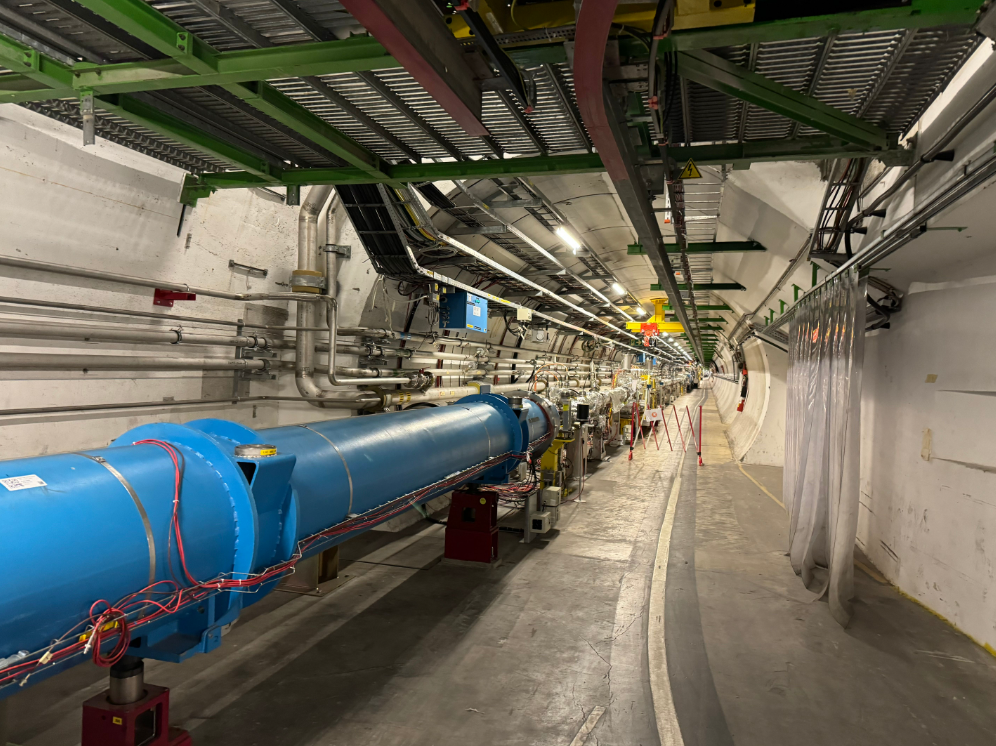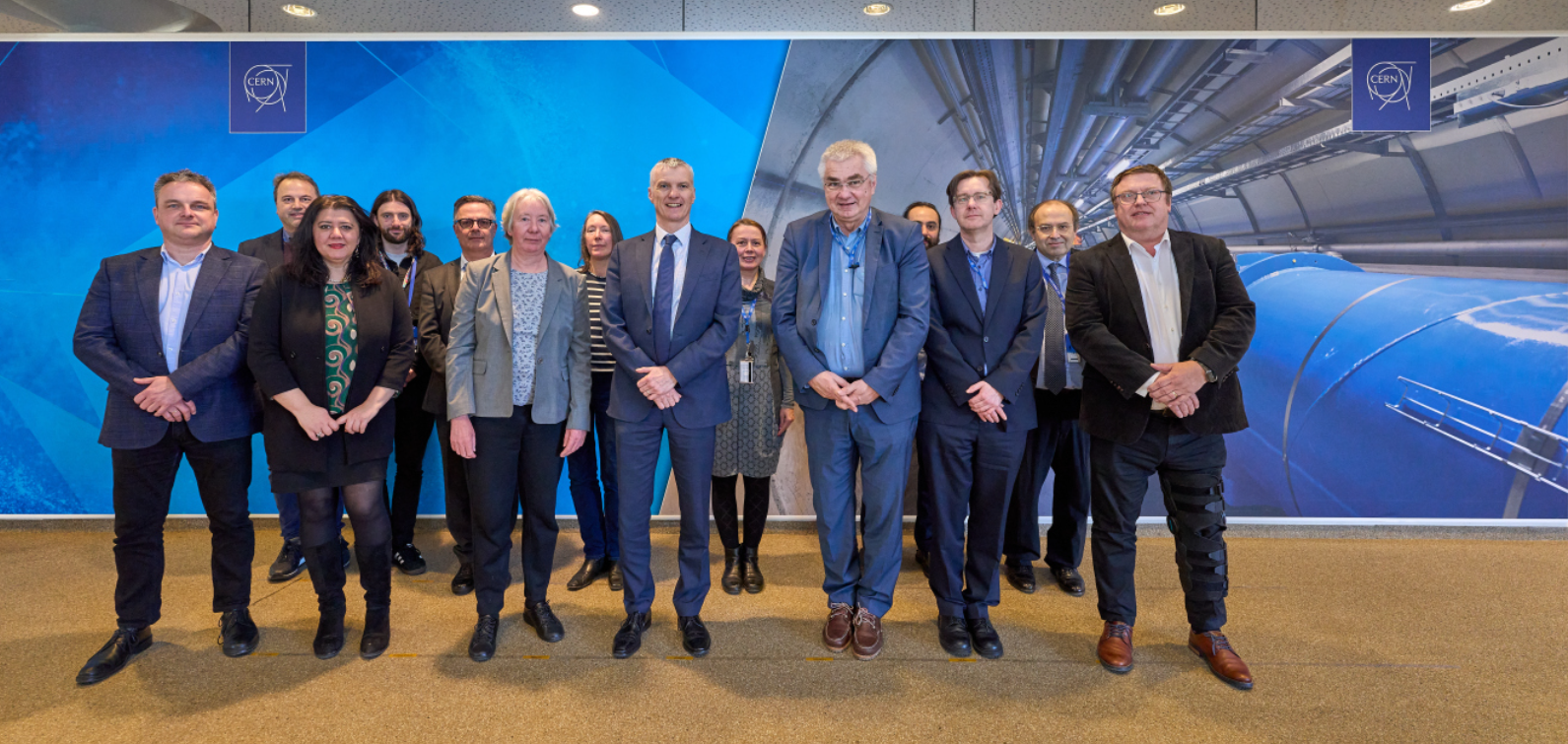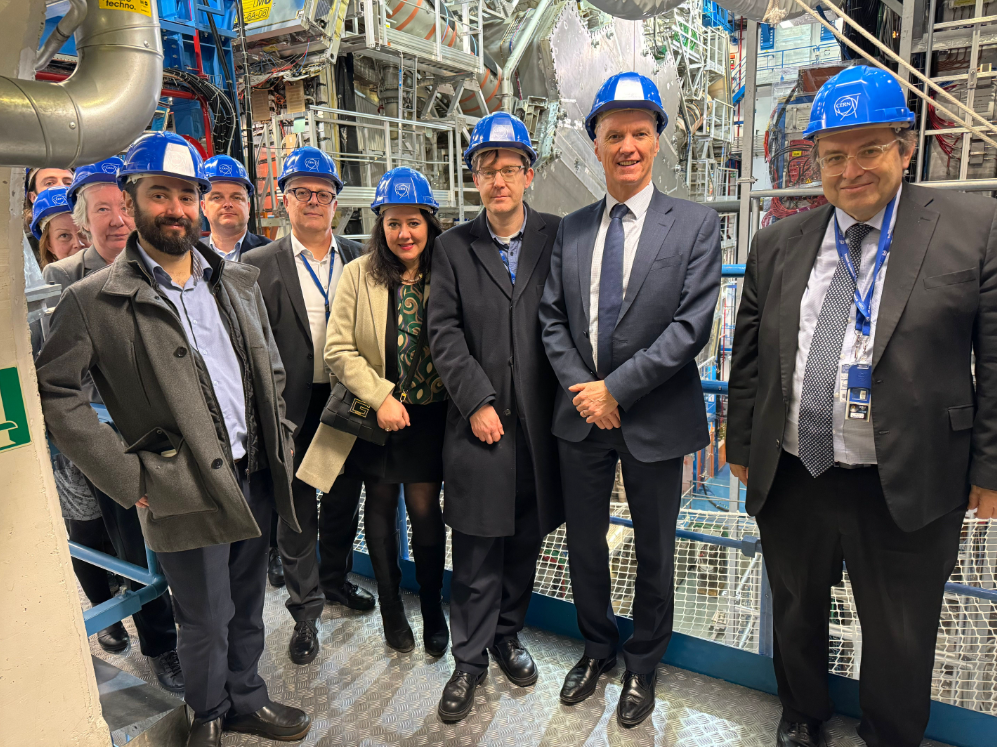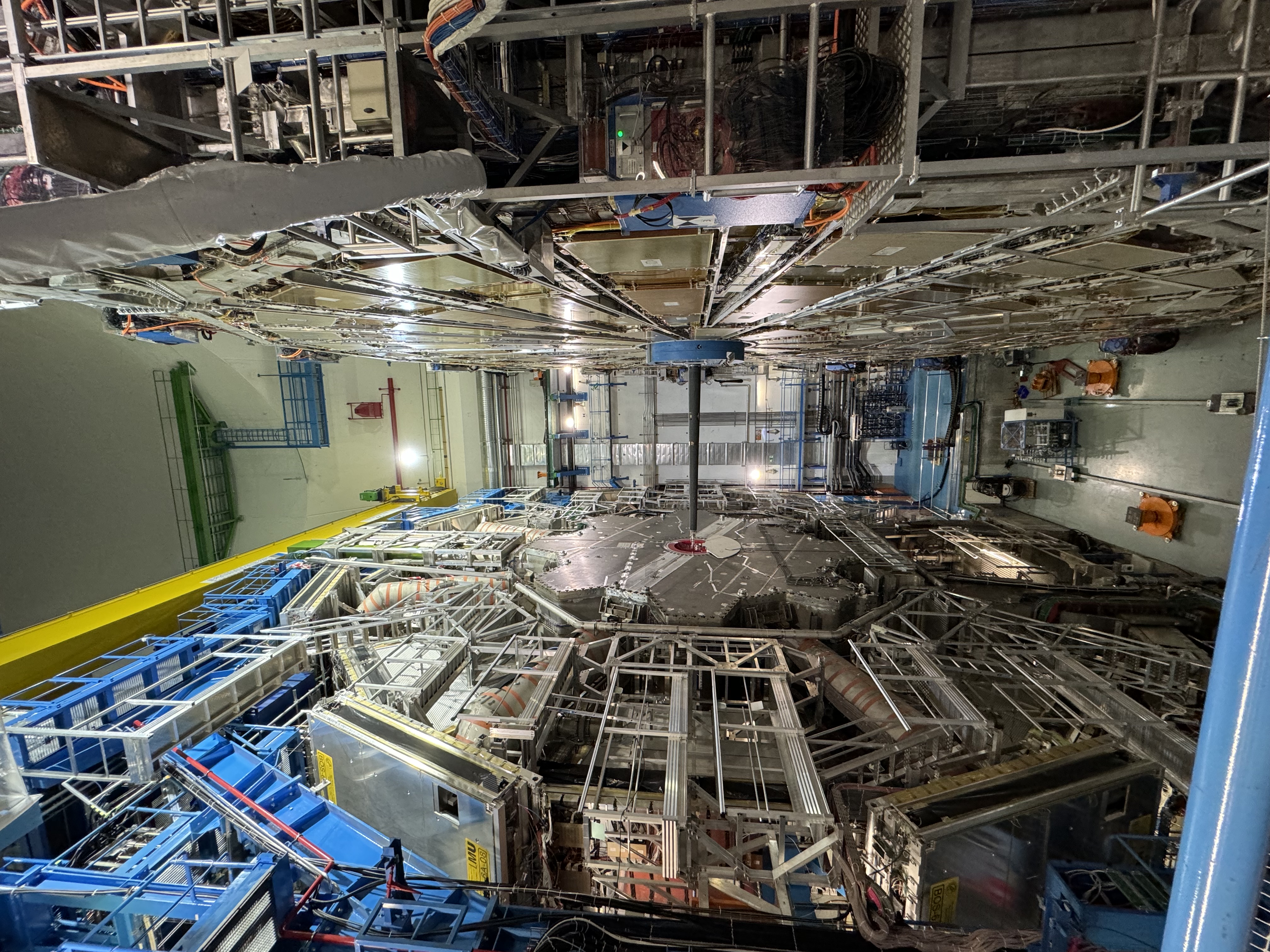
The University of Liverpool delegation in the LHC tunnel
Vice-Chancellor, Professor Tim Jones visited CERN, the European Organization for Nuclear Research that is celebrating its 70th anniversary this year, to see the world’s largest and most powerful particle accelerator, the Large Hadron Collider (LHC).

The Large Hadron Collider tunnel
Professor Jones was joined by a University of Liverpool delegation from the Department of Physics including senior academics, early career researchers and PhD students.
As their visit coincided with a shutdown of the accelerator, the delegation was allowed to visit the fantastic 27-kilometre accelerator ring 100 metres below ground.
During the two-day visit, the Vice Chancellor could appreciate how the Department of Physics is engaged with CERN, including research around the major experiments in accelerator science, particle and nuclear physics, and development of new detectors and technologies.

The University of Liverpool Delegation with the Director of Research and Computing at CERN
The University’s Department of Physics is in the top 25 list of CERN key collaborators worldwide, forming part of the crucial international effort to build and upgrade LHC experiments and beyond.
About 75% of the Department of Physics is engaged with CERN activities, with more than 60 PhD students participating, and dedicated programmes for training at all levels.
The visit ensured a range of positive discussions could take place about how to further strengthen the University’s relationship with CERN including studentship exchange programmes and organisation of public events.

Vice Chancellor Professor Tim Jones said: “CERN really is a remarkable scientific facility – one of the engineering wonders of the world. It was fantastic to witness the University’s many leading contributions to experiments in particle, nuclear and accelerator physics and see CERN’s fantastic facilities.
“I’m really proud that in the recent policy paper on the UK Strategy for engagement with CERN, our University was highlighted in a case study for our world-leading expertise in silicon detector technology and scientific exploitation. It was great to see one of our key research areas in action and making a difference to the scientific world. I also enjoyed talking with our early career researchers to learn more about their contributions to and aspirations for our partnership with CERN.
“A big thank you to all who attended from Physics Department including Professor Monica D’Onofrio, Head of Research and Liverpool leader of two of the particle physics experiments, who co-ordinated the visit, Professor Tim Veal, Head of Department, and colleagues steering the scientific activities of Liverpool at CERN, who patiently and enthusiastically explained the wonders of particle, nuclear and accelerator physics to me!”

The ATLAS experiment at CERN